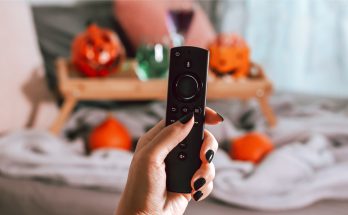Spending more time at home and not in restaurants is making people hungry for cooking shows. These can be divided into four categories: classic, educational, entertaining, and homespun. We’ve got the skinny on all of them for you.
The Classics
The first real cooking show that created the cooking show genre in the first place was Julia Child’s The French Chef, in which she brought French cooking to the American public via television between 1963 and 1973. Besides her deep French culinary knowledge, something else I love about Julia Child is that she was never afraid of butter. Butter is irreplaceable in French cooking for its nutritional and flavor value. Nevertheless, when her fans expressed their fear of butter, she would admonish them to “use cream instead!”
Educate Me!
To me, authentic cooking that comes with a charming French accent and useful chef techniques, would be that of chef Jacques Pépin. His public television appearances on KQED Food, PBS American Masters, and his Essential Pépin DVD shows are all of this and more. This is where you will actually learn cooking techniques, as opposed to just getting entertained. You’ll get that, too, but to me, the litmus test is, have I learned anything? Pépin, being French but living in the US for decades, is not afraid of meat, organs, or fat. This is something I deeply respect and cannot necessarily say about many chefs or cookbook authors popular today. Pépin and Julia Child appeared in several PBS cooking episodes together in the early 1990s, jabbing each other warmly about each other’s cooking habits. These are a must watch: the combination of Pépin and Child is a culinary match made in heaven!
Where’s the Beef?
As a meat lover, I am also interested in butchery, and how you get from the cut of meat to the final recipe. Some of the finest educational techniques in butchery are on Bon Appétit’s YouTube channel, where the masters demystify the various cuts, whether it’s from the steer, the pig, the lamb, or the fish. Understanding the cuts and filets makes knowing how to prepare them as a meal for your family easier and more meaningful. It also makes one appreciate the work of butchers, farmers, and chefs that much more. I have found that people in these métiers are always delighted to share their recipes and knowledge with their customers.
Entertain Me!
Every celebrity chef and cooking outlet has had their specialty, from Anthony Bourdain’s memorable ‘No Reservations” and “Parts Unknown” to Iron Chef America. Shows like Gordon Ramsay’s Kitchen Nightmares, Food Network’s Chopped, Top Chef, and so many others are “reality” cooking and competition shows that are there to entertain with an emphasis on emotion, reaction, and conflict. But as Pépin says with regard to these “reality” shows, this is not really what happens in the kitchen. Luckily, even tough guys like Ramsay are not just entertainers but also masters and share their culinary techniques on YouTube, if you search for them.
Real Down Home Cookin’
And, if you are looking for everyday cooking at home with kids, in the midst of Zoom calls, drum practice, and real meals created in a self-deprecating atmosphere, then check out my Bordeaux Kitchen YouTube channel or Facebook page, where I have begun posting live demonstrations in my own humble kitchen, with my two daughters handing me ingredients and checking my viewer comments.
Whether it’s an “indie” channel or a big name, you are sure to find the kind of cooking style watching to your liking with a simple search, since even the stars are stuck at home!



